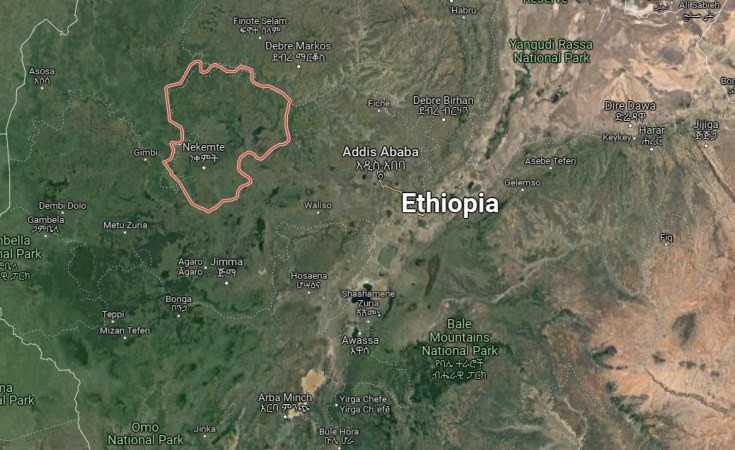Addis Ababa — Oromia Physicians' Association (OPA ), a non-governmental professional association, called on governmental and non-governmental bodies, international and national humanitarian health actors and communities to give due attention to the war affected areas in Oromia to alleviate the undermined healthcare and humanitarian crises in the region.
According to OPA's open letter, to the International and national health actors, the currently ongoing war in different parts of Oromia, particularly, Wollega and Showa zones, is spiraling into greater depth and complexity day by day without getting any attention. The direness of basic needs and healthcare services is being embittered by access gaps and security constraints probably in its worst forms. Number of IDPs are considerably increasing as more and more people flee their homes and end up in crowds of deplorable living and unprotected shelters.
Appreciating the efforts being made in supporting the war affected areas in the northern part of Ethiopia, OPA expressed it's regret as it has been reaching out to it's national and international affiliates to launch similar efforts in mitigating the crises in Oromia and the request for collaboration to a number of stakeholders did not get positive response so far.
"Despite the commendable involvement in war affected areas of other parts of the country, the international health response in conflict-affected areas of Oromia region is deemed to be below what the unabated crises deserves."
In addition to pressing problems like shortages of emergency medications, medical commodities, and basic medical equipment, lack of continuous supply, shortages of healthcare providers (specialized healthcare professionals in particular), the security and instability in these areas is hindering health services access that home deliveries have notably increased along with tragic maternal health incidents, the letter added.
"Healthcare workers are also being threatened, detained, harassed, intimidated, and sometimes attacked by the warring parties, and many workers leave the conflict areas in search of safer workplaces."
Oromia region is burdened with multiple crises continuously driving humanitarian needs. Hostilities in western Oromia, particularly Wollega, continue to uproot civilians, and destroy livelihoods and basic infrastructure, according to the latest report by the UN Office of Coordination Humanitarian Affairs (UNOCHA).
The latest report reveals that new displacement figures have yet to be confirmed for lack of access, but it is expected to cause a drastic increase to the existing IDP caseload in the area. Local authorities confirm there are over 106,000 IDPs in West Wollega Zone and 116,000 IDPs in Horo Guduru Wollega alone.
The regional Government is establishing additional IDP sites to accommodate the increasing IDP influx. Needs are outpacing response efforts. For example, only 1,100 households of almost 19,000 households in need in West Wollega Zone and 9,337 households of 30,000 households in need in East Wollega Zone have so far received shelter and non-food items support. Similarly, hostilities in Guji and West Guji zones are impeding flow of assistance.
In a report released on 11 November, the UN said that due to the prevailing insecurity since 2019 in the western and southern Oromia the humanitarian crisis has been deteriorating from time to time. "The major cause is clashes with gunmen." According to the statement, there are an estimated 740,000 Internally Displaced People (IDP) in western Oromia, border areas with the Amhara and the Benishangul Gumuz regions.
The statement also stated that the violence has restricted transportation and distribution of humanitarian assistance to the people in those areas. Aid workers were also unable to distribute assistance to IDP in East and West Wollega zones due to movement restrictions. "Vehicles and commodities have been stranded, aid workers have experienced detention and other forms of harassment," according to the statement.
Latest report by UN further detailed that malnutrition is also a rising concern in Oromia, particularly in the drought-affected zones. According to a recent survey, of more than 563,000 children screened, 1.96 per cent were found severely malnourished and 18 per cent moderately malnourished. Shortage of nutrition supplies and low partners' presence in several drought-affected woredas remain a challenge.
The Oromo Liberation Army (OLA) has been carrying out military operations against the federal forces in Oromia since 2018. The Ethiopian government has also been taking offensive measures against the rebel group. And recently, militants from the Amhara region and those who have been living in Haro village in East Wollega zone for a long time have been accused by residents and officials of attacking civilians.
An aerial offensive carried out by government forces on 9 November killed dozens of individuals in Mendi town in West Wollega Zone. Three days earlier, Addis Standard reported that civilians were killed in the clash between OLA combatants and government forces in Nekemte, capital of East Wollega Zone.
Two attacks blamed on Amhara militants called"Fanno" on 25 and 29 of November in Kiremu district, East Wollega zone of Oromia region, killed dozens of people, including Damtew Kefyalew Gemeda, Kiremu District Court judge. AS


